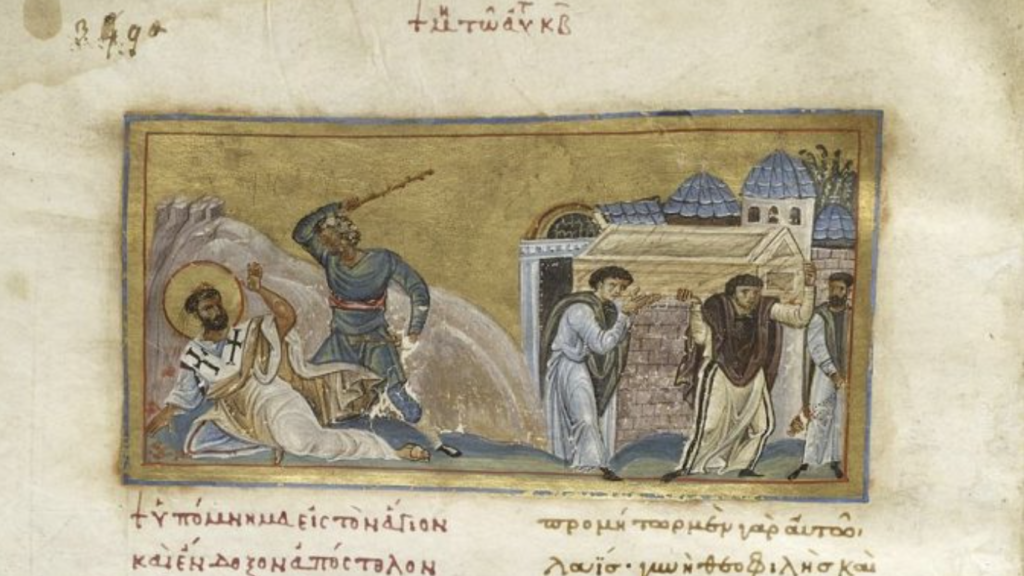St. Timothy and St. Titus were close companions of the apostle Paul, and served as bishops of the Catholic Church in its earliest days. The letters they each received from St. Paul are included in the New Testament.
Timothy was born to a Jewish mother and a non-Jewish father, in present-day Turkey. His mother Eunice and his grandmother Lois were early converts to the Church, and Timothy is described as a student of Sacred Scripture as a child.
Around the year 51, St. Paul visited Timothy’s home region, and Timothy joined him when he left the town. After conflicts forced Paul to leave the city of Berea, Timothy stayed behind to build up the local church. He was later sent to Thessalonia to help their Church through a period of persecution.
Paul and Timothy met up again in Corinth, and Timothy eventually went to Macedonia on Paul’s behalf. From there, he returned to Corinth and resumed traveling with Paul. He was imprisoned for some time during his missionary work — his release is mentioned in the New Testament Epistle to the Hebrews.
Around the year 64, Timothy was made the first bishop of the Church of Ephesus. The same year, he received the first of two surviving letters from Paul. In the second, written in 65, Paul urged Timothy to visit him in Rome, where he was imprisoned before dying as a martyr.
According to ancient sources, Timothy also died for the faith in the year 93. While leading the Church in Ephesus, he decried the worship of idols, and was killed by a mob. The pagan festival he had protested against was held on Jan. 22, and this date was preserved as his memorial in the early Church.
St. Titus was born into a pagan family, and studied Greek philosophy and poetry. But he is said to have had a prophetic dream, which moved him to begin reading Hebrew Scriptures.
Tradition holds that Titus went to Jerusalem, and witnessed Christ preaching there. Only later, however, did he receive baptism from St. Paul, who called him his “true child in our common faith.”
Paul served as Titus’ spiritual father, and relied on him as an assistant and interpreter. Titus went to the Apostolic Council of Jerusalem with Paul in 51, and was sent to the Corinthian Church twice. After Paul’s first imprisonment in Rome, he made Titus Bishop of Crete.
Around the year 64, Paul sent his only surviving letter to Titus, instructing him in pastoral ministry, and preparing to meet with him in the Greek city of Nicopolis. Titus evangelized Dalmatia, in what is now Croatia, before returning to Crete.
In Crete, Titus led the Church into his 90s, overthrowing paganism, and promoting the faith. He died peacefully in old age.

